- Home
- Darrell Maloney
Ranger: Book 1: A Humble Beginning Page 5
Ranger: Book 1: A Humble Beginning Read online
Page 5
Tom said, “Cross-reference him in the TDCJ database.”
TDJC was the Texas Department of Criminal Justice. The state prison system. If Ronald Smith, 1755 Spencer Avenue in Amarillo had ever done time in Texas, he’d be there.
Randy’s fingers flew across the keys and as if by magic, a mug shot appeared on the screen.
Ronald Smith was in his late twenties and already balding.
“Probably inbred,” Tom huffed.
Randy countered, “Actually, male pattern baldness is hereditary, usually on the mother’s side, and usually skips at least one generation.”
“Yeah, well, I like my version better.”
Balding or not, Ronald Smith definitely wasn’t one of the men they’d seen at the diner, or getting out at the ranch house.
Tom whistled as he scanned Smith’s long rap sheet. Although not quite twenty nine, he’d already done four stints in prison. All for drug crimes.
The latest, for possession of six grams of cocaine with the intent to distribute, earned him a five year sentence.
He was paroled after two, just three months before.
“That,” opined Tom, “is a big part of the drug problem. We spend all this time catching these suckers and the soft-hearted fools on the parole boards keep letting them back out again.”
It was a major complaint not only among Rangers, but with virtually every other law enforcement agency in the country.
“Okay. Now what?”
“Well, we know where they’re at. And I doubt they’re going anywhere. Let’s petition for a wiretap and see who they’re talking to. We’ll go out at night and plant a long range camera across the highway, where they’re not likely to find it, and since there’s no place to hide and do surveillance. Then let’s let them stew for a few days and see if we can get the police chief on audio or video meeting with them.
“While we’re waiting for that to happen, we can set up shop down the road and see if we can get some intel on where they go when they’re not at the ranch.”
“You got anything pressing here in Lubbock? Anything that can’t wait for a couple of weeks?”
“Nope. Nothing except spend a night or two here trying to talk the ghost of old Henry Jenkins to find another place to haunt.”
“I reckon old Henry will wait. Let’s rent a couple of rooms at a motel on the north side. If they make us and turn the tables on us, they may tail us back to Lubbock. I’d much rather them follow us to a cheap motel and think we’re a couple of rivals than tail us back to the federal building and think we might be coppers.”
“Sounds good to me, my friend. Let’s go fishing.”
Chapter 14
Randy checked into the Slumber Inn on Highway 87 and collapsed atop the bed. He hadn’t slept well for a couple of nights and it had been a trying day. His plan was to go to bed early and try to get a restful night’s sleep, for he knew the case was heating up.
For the next few days he needed to be at the top of his game.
One of the things they’d taught him at the academy was that something always goes wrong in a long-term surveillance. It’s the one constant in the surveillance game. No matter what your plan is, no matter how well you prepare, something will always go wrong.
A camera battery will fail at a critical time. Just before the handoff of cash takes place, an idiot in a mail truck will park it between the camera and its targets.
Or, the worst of the worst, the bad guys will figure out they’re being watched and will quash whatever deal is in the works.
Or just leave and do it elsewhere.
They’d told Randy and the others at the academy that such things are unavoidable. And that the best way to deal with them is to expect them, be flexible, and to deal with them as best they could. And to always, without exception, to keep Job 1 in mind.
Job 1, in Ranger lingo, was to always live to fight another day.
There were a lot of Texas Ranger heroes through the years. Men who’d risked their lives for the cause. Men whose circumstance, and days, had finally run out on them. Men who’d made the ultimate sacrifice in the name of Texas justice.
A lot of rangers had died in the line of duty since the Rangers’ inception.
And the Rangers frowned upon that.
It wasn’t that the Rangers didn’t appreciate the sacrifices those men made. And they relished telling and retelling the stories of how this Ranger or that died at the tip of a Comanche spear, or by the gun of a legendary outlaw.
But they preferred their Rangers alive.
They got a lot more work done that way.
From the first day at the academy it was drilled into the heads of the Ranger candidates: nothing is worth the life of your fellow Rangers. Nothing is worth the cost of your life. Heroism is neither expected nor wanted.
And recklessness in the name of heroism would not be tolerated.
In the early days of the Rangers, bravado was an admirable trait. Men were different then, and so were circumstances. There was no such thing as radio backup. Men were hired with the understanding they’d be placing their lives at risk each and every day. And that one day their luck would likely run out.
That was why, in the early days of the agency, a Ranger was retired at full pension after only ten years. It was thought that a man who made it that far was incredibly lucky. And that his days were almost certainly numbered.
In modern times, bravado was frowned upon. In the twenty first century law enforcement was a completely different ball game.
These days there were smart guns. Bullet proof body armor. Bullet proof driver’s side windows on patrol cars. Agencies which no longer thought it was an inconvenience to provide ready backup to their counterparts. With the understanding that their counterparts would someday be called upon to return the favor.
These days Rangers were much better at communicating with one another. And in formulating well thought out plans before beginning a new operation.
And in analyzing the situation as it progressed. And making adjustments as needed to keep their heroes safe.
Even the biggest risk: the small number of Rangers when compared with other law enforcement agencies, was addressed.
That was where the team policy came from. Any Ranger performing an investigation where even the remotest possibility of violence was present would have a partner by his side.
The thinking was that two heads were better than one. And two guns were too.
So Randy was uneasy. But he couldn’t say why. The possibility of getting wounded or killed on the job were remote. He and Tom worked well together. They were together for only a short time, yet read each other very well. They planned their operations well, believing in the old Ranger adage, “Go off half-cocked and end up whole-dead.”
No, it wasn’t the prospect of being killed or wounded that was causing him to be uneasy. And forcing him to lose sleep at night. It was something else.
Something he couldn’t put his finger on.
His mother, God rest her soul, used to have “the dreams.”
That was what she called them, only she’d say the words in an ominous voice, as though her dreams were scary and perhaps evil.
What she termed “the dreams” were her premonitions. They frequently came to her either in the dead of night, forcing her into the kitchen to drink cup after cup of coffee. Just so she wouldn’t have to return to bed and risk having another.
Or they’d occur during daydreams, causing her to freak out. Randy remembered once when she’d had a daydream while on her way to drop him off at school. Into her mind popped a vision – nothing specific - that something dreadful was to happen at school that day. She couldn’t say exactly why, but she saw the need to wheel the car around and to return home. Instead of going to school that day he got the day off.
It was okay with him. He spent the day reading “Who’ll Catch the Rainbow,” a novel about World War II and its effect on the home front.
It wasn’t until that evening, when they watched the local news together, that they learned of the out-of-control big rig which had crashed into the wall of the school.
Two were killed, and several were sent to the hospital.
But not Randy. Randy was protected by his mother’s premonition.
In fact, his mother’s premonitions frequently came true. Not always. But often enough to get the attention of everyone in the family when she had one.
When she got up in the morning to tell of “the dream” she had, plans were changed or canceled outright. Sometimes she didn’t leave the house for days, until she decided the danger had passed, or her prediction proved itself true. Once, she was convinced she would fall at work and break her back. She quit without notice. Her husband’s insistence that she was being foolish was met with her counterargument, of which she was completely convinced: “The only reason I didn’t fall is because I never went back. That proves the dream was correct.”
Randy seemed to inherit some of his mother’s ability to see danger. Growing up, he sometimes told his friends and teachers to be careful.
“Why?” they’d ask.
“Because I have a feeling something is going to happen to you soon. Something bad.”
None of his friends or teachers ever died, but several of them suffered accidents or mishaps, usually within a couple of days of Randy’s warnings. Some took his premonitions seriously, but most others scoffed. He learned after awhile to keep his warnings to himself, except for his closest friends. They were the ones most likely to believe him anyway.
He’d had a gnawing feeling in his gut for several days now. It wasn’t specific. He couldn’t pinpoint it to a specific person, or even an event.
He just felt that something ominous was on the horizon.
Mean
while, ninety one million miles away, a massive solar storm was brewing on the surface of the sun. That in itself wasn’t unusual. The sun was always stormy. But the broiling gasses swirling and competing for space was more massive now than at any other time in two hundred years. It was getting quite ugly on old Sol’s mighty face.
Chapter 15
The motel clerk had looked at Randy funny when he requested a wake-up call at three a.m.
“Are you sure?” he’d asked.
“Yes,” Randy said while nodding his head. “I’m an early riser.”
The truth was, Randy only rose early when he had to. And since he hadn’t slept well lately, he half expected to be awake when the phone rang anyway. Probably staring at the ceiling and thinking about his mom and her dreams.
That wasn’t the case.
The body has a way of playing catch-up and seems to keep track of the deficit a sleepless person is running. Occasionally it will overrule the stress or whatever is causing sleepless nights and force a body into a good night’s sleep, whether one wants it or not.
That was the case on this particular night. Randy slept like a rock.
At least until the phone rang at promptly three a.m.
Randy had fallen asleep as soon as his head hit the pillow. He could barely remember going to bed.
He wanted to roll back over and go back to sleep. But duty was calling, and Randy wasn’t the type of man to shirk his responsibilities.
Especially when sleeping in would mean missing the chance to plant long-range surveillance cameras under the cover of darkness. And if they failed to do it now, and missed something important, it could jeopardize their entire case.
He swung around and put two feet on the floor, then forced himself to stand and went in to take a quick shower.
He knew a surefire way to wake himself up.
It wasn’t pleasant, but it worked better than coffee or anything else he’d ever tried.
He stepped into the shower and adjusted the water temperature. Hot. Just the way he liked it. He could stand there for hours, until the hot water ran out or his entire body turned into a big pink raisin.
But he had a job to do.
So he turned the hot water completely off and forced himself to stand beneath the frigid water for five straight minutes. By the time he was finished he was no longer in danger of turning into a raisin. His body was shriveled, goose-bumped and shivering.
But he was wide awake.
He turned off the water and dried off, shaved and dressed.
There was a light tap on the door. Three knocks, a pause, and then two.
It was Tom’s knock. There was nothing in academy training that said partners on assignment should develop their own special knock. Nothing in the Ranger handbook either. Nothing in the myriad of regulations that covered everything from what type of socks to wear on duty to how many inches their heels should be from their toes while marching in drills.
They’d never discussed the knock between themselves either. Tom just had a very distinctive knock; Randy learned to copy it. That way they knew who was at the door without having to announce it.
It had never come in handy before. It had never saved either of their lives or prevented an ambush. And in all probability it never would. It was just one way among many they’d adapted their behaviors since they’d become partners.
Randy opened the door with his left hand while brushing his teeth with his right, then held up three fingers to indicate to Tom how many minutes before he was ready.
Like an old married couple who could read each other’s minds and finish each other’s sentences, no more communication was necessary. Tom knew exactly what the three fingers meant.
After Randy rinsed his mouth he sat on the edge of the bed and said, “I’m hungry. Did you see anyplace that might be open this time of morning?”
“I’m way ahead of you partner. I already called the IHOP and ordered two cheeseburgers to go. One fry and one onion ring. Take your pick. I’m not choosy. That’s why I have you for a partner.”
“Nope. You have me for a partner because I’m tall, dark and handsome. I make our female witnesses swoon and tell me everything we need to know. That’s why we solve all of our cases.”
“Funny. I though we solved all our cases because I was incredibly smart.”
“Yeah, well… you keep telling yourself that if it makes you feel better. Did you order coffee also?”
“Two steaming cups, mine black and yours sissified.”
“Atta boy.”
An hour later Randy was halfway up a power pole directly across Highway 87 from the ranch. They’d parked their vehicle half a mile away, had worn dark clothing, and had hiked to the pole. Only an occasional oncoming truck cast light in their direction, and Tom was able to hit the dirt each time. When Randy was up on the pole, he was almost invisible. Truck headlights were generally aimed at the pavement in front of it, not up in the air.
Randy mounted two surveillance cameras. They were high tech, the latest thing. Light-enhancing night vision capability, high definition, auto-focus, with tiny solar panels atop each camera to charge the batteries during the day, so they could continue to record all night. These would run nonstop for a maximum of eight days before the memory cards had to be pulled and either purged of data or replaced.
Randy aimed one at the ranch house and zoomed in close. He could easily make out the word “welcome” on the mat in front of the door.
This camera would hopefully capture the faces of everyone who came and went from the house, provided they entered or exited through the front door.
The second camera would record traffic on Farm to Market Road 1348. Randy pressed the “zoom” button until it focused on the exact place where FM 1348 connected with Highway 87. There was a stop sign there, and all vehicles registered in the State of Texas were required to have front plates.
Unless the license plate was intentionally obscured, the camera would record it, as well as the date and time it entered and left the property.
Randy climbed down the pole and said, “Ready. How long until sunrise?”
Tom checked his watch.
“About an hour. Want to take up a position a couple of miles up the road and see if we can catch the Silverado when it goes on the move?”
“Sounds like a plan. Count me in.”
Chapter 16
For much of the morning, the Chevy truck led the Rangers on a laundry list of errands. First to the convenience store next to Janice’s diner, where the driver of the pickup seemed to take quite a fascination in scratch-off lottery tickets.
Three times he entered the store, walking up to the cash register and pointing to various tickets behind the counter, having the cashier tear off each ticket and then ring up his total.
While the cashier had his back turned, one of the driver’s friends walked casually up and down the aisles, occasionally stuffing things into the sleeves of a bulky coat and into his pockets.
Tom, watching from afar with the Bushnells, counted two cans of beer, a box of wet-wipes, a tube of toothpaste and a box of Pop-Tarts.
“Well,” observed Tom, “If we don’t get them for drug trafficking we’ve got them for shoplifting.”
“Don’t forget organized crime.”
“Good point.”
Tacking on organized crime charges to relatively small offenses was a growing practice among Texas and federal prosecutors. It was first tried in Houston several years before to gain control over street gangs which were running rampant across the city and causing mass chaos.
A smart prosecutor said, “Hey, we have these three burglars who were caught burglarizing a business together. Individually we can give each of them two to three years in state prison.
“However, if we can give one of them immunity to admit they were working together to get money to score a large amount of drugs to resell, then that comes under the organized crime statute. That’s an additional five to ten for the two who didn’t get immunity. And eventually they’ll use street justice to take care of the guy who rolled on them.”
The tactic worked remarkably well. Word got around, and now prosecutors all over Texas were using similar tactics to send people away for relatively minor offenses.

 A Perilous Journey
A Perilous Journey The Yellowstone Event: Book 6: The Aftermath
The Yellowstone Event: Book 6: The Aftermath Eden Bound
Eden Bound Without Warning
Without Warning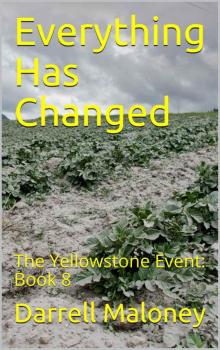 Everything Has Changed
Everything Has Changed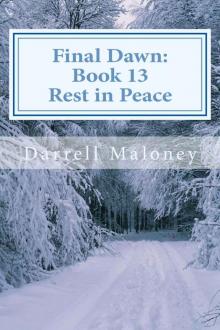 Rest in Peace
Rest in Peace This Changes Everything
This Changes Everything The Final Chapter
The Final Chapter It Can't Be Her
It Can't Be Her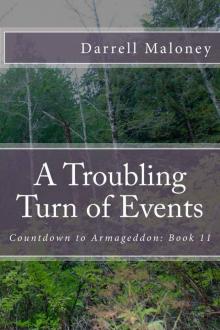 A Troubling Turn of Events
A Troubling Turn of Events The Blockade
The Blockade A Tearful Reunion
A Tearful Reunion Countdown to Armageddon
Countdown to Armageddon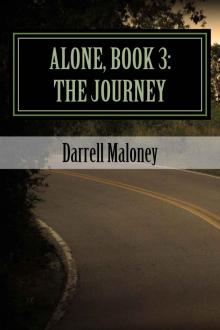 Alone, Book 3: The Journey
Alone, Book 3: The Journey The Army Comes Calling
The Army Comes Calling The Grim Reaper Comes Calling
The Grim Reaper Comes Calling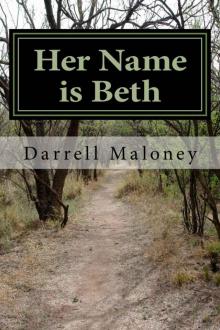 Her Name is Beth: Alone: Book 5
Her Name is Beth: Alone: Book 5 Red: The Adventure Begins
Red: The Adventure Begins Rise From The Ashes: The Rebirth of San Antonio (Countdown to Armageddon Book 3)
Rise From The Ashes: The Rebirth of San Antonio (Countdown to Armageddon Book 3) An Unkind Winter (Alone Book 2)
An Unkind Winter (Alone Book 2)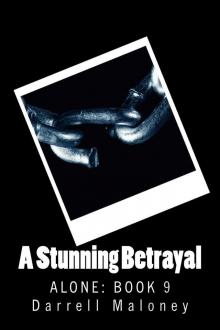 A Stunning Betrayal: Alone: Book 9
A Stunning Betrayal: Alone: Book 9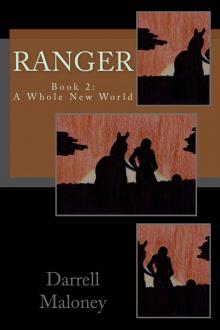 A Whole New World: Ranger: Book 2
A Whole New World: Ranger: Book 2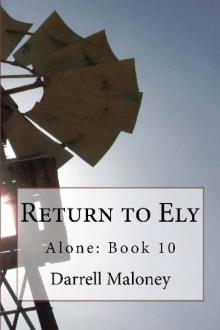 Return To Ely
Return To Ely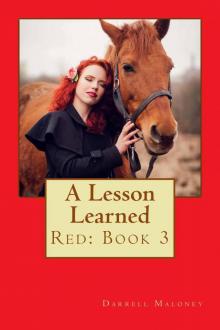 A Lesson Learned: Red: Book 3
A Lesson Learned: Red: Book 3 The Homecoming: Countdown to Armageddon: Book 5
The Homecoming: Countdown to Armageddon: Book 5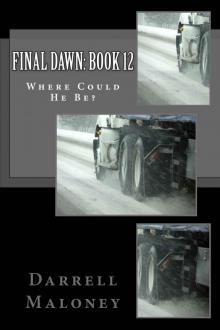 Final Dawn: Book 12: Where Could He Be?
Final Dawn: Book 12: Where Could He Be?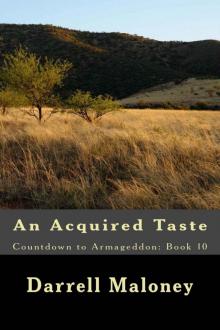 An Acquired Taste
An Acquired Taste On Desert Sands: Alone: Book 6
On Desert Sands: Alone: Book 6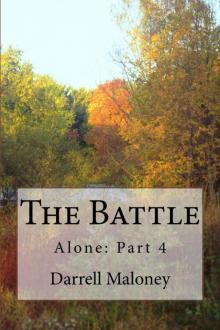 The Battle: Alone: Book 4
The Battle: Alone: Book 4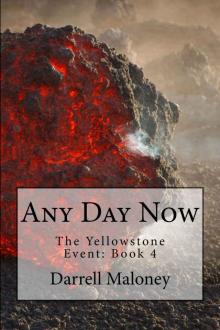 Any Day Now
Any Day Now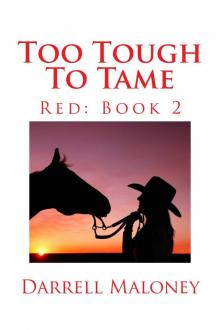 Too Tough To Tame: Red: Book 2
Too Tough To Tame: Red: Book 2 No Help From Austin: Red: Book 5
No Help From Austin: Red: Book 5 An Unwelcome Homecoming
An Unwelcome Homecoming A New Start: Final Dawn: Book 9 (Volume 9)
A New Start: Final Dawn: Book 9 (Volume 9)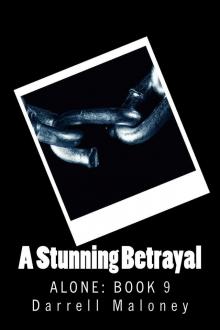 A Stunning Betrayal
A Stunning Betrayal An Undeclared War (Countdown to Armageddon Book 4)
An Undeclared War (Countdown to Armageddon Book 4)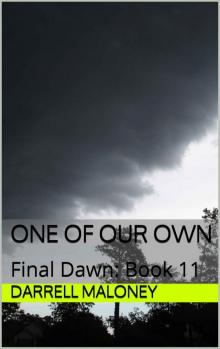 One of Our Own: Final Dawn: Book 11
One of Our Own: Final Dawn: Book 11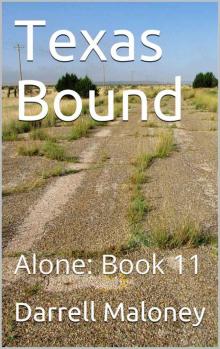 Texas Bound: Alone: Book 11
Texas Bound: Alone: Book 11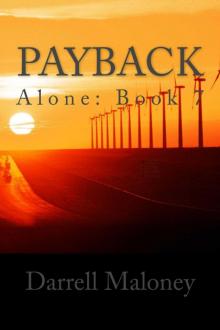 Payback: Alone: Book 7
Payback: Alone: Book 7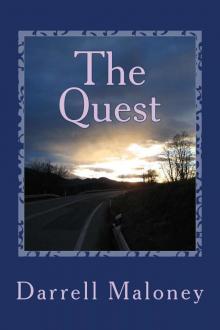 The Quest: Countdown to Armageddon: Book 6
The Quest: Countdown to Armageddon: Book 6 The Siege
The Siege The Yellowstone Event: Book 1: Fire in the Sky
The Yellowstone Event: Book 1: Fire in the Sky Return to Blanco (Red Book 4)
Return to Blanco (Red Book 4) The Search
The Search AFTER THE DUST SETTLED (Countdown to Armageddon Book 2)
AFTER THE DUST SETTLED (Countdown to Armageddon Book 2)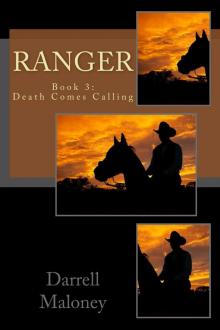 Death Comes Calling (Ranger Book 3)
Death Comes Calling (Ranger Book 3)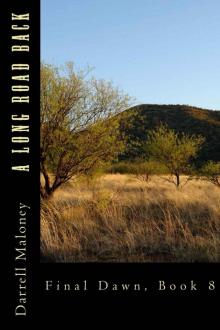 A Long Road Back: Final Dawn: Book 8
A Long Road Back: Final Dawn: Book 8